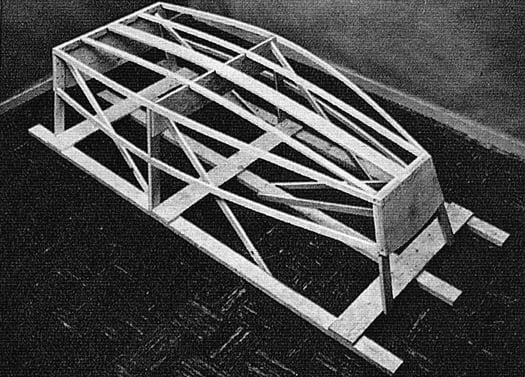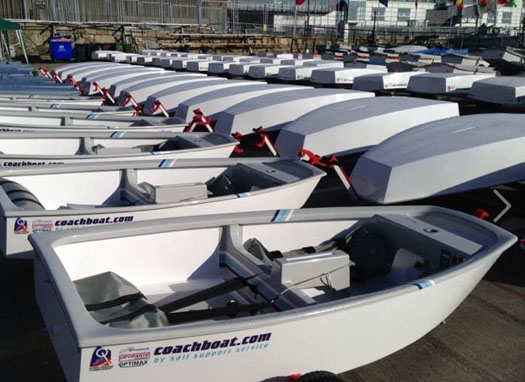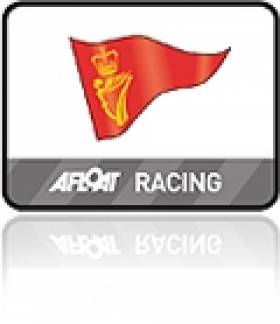Displaying items by tag: fibreglass
Is Being an Olympic Sport Good for Irish Sailing?
#olympicsailing – Water Rat's article: Is ISAF Alive To Sailing's Survival As An Olympic Sport? has raised the issue about the future viability of the Olympic sailing movement and brought reaction from readers, including Midshipman, who says it begs two interesting questions:
· Is being an Olympic sport good for sailing?
· Why have the amazing advances we have witnessed in technology over the last 15 years not made sailing more accessible and less expensive?
With the exception of the Laser (a manufacturer controlled boat which is not cheap at €7,250), none of the boats used in the Olympics are to be found in mainstream sailing.
The explosion in sailing during the 60's and 70's was fuelled by the development of exciting low cost boats built, mainly by amateurs, in plywood using new adhesive and coating techniques.
The turn of the century has seen vast improvements in the technologies used in boat building, making boats lighter, faster, stronger safer, but certainly not cheaper, as amateur construction can no longer compete with the sophisticated techniques of the boating industry.
That is probably why the most popular dinghy class in the world remains the inexpensive and simple Sunfish while low tech Hobie Beach Cats still dominate the multihull scene.
In years gone by, most young sailors got their start in wooden Optimists, often built by enthusiastic parents at modest cost over a couple of weekends and then typically graduated to a home built Mirror or its equivalent for their first experience of multi crewed sailing with multiple sails.

A wooden framework of the early Optimist dinghy
Nothing less than a relatively expensive Glass Fibre Optimist will do now and the Street Cred of young people is dependent on graduating to costly Lasers and 420s. In Ireland this situation is also compounded by the sense of failure youngsters experience if they fail to qualify for one of the Academy or Elite development squads which currently involves over 100 youth sailors of varied abilities.

The scene today – charter boats used at Dun Laoghaire for the 2014 Optimist Europeans
Sailing has become so fixated on exciting performance and elite achievement that it has lost sight of the sheer enjoyment of messing about in boats at modest cost which is the principle attraction to the vast majority of people.
We all admire the highly skilled and motivated sailors who aspire to the ultimate Olympic challenge, but let's face it , what they do has virtually no relevance to the activities of most recreational sailors. ISAF uses racing formats and boats which are not reflective of the sport in general, largely on the grounds of needing to excite TV viewers.
With the exception of horse riding, sailing is probably the most equipment dependent (meaning most expensive) sport in the Olympics. I am not sure that this is a message which ultimately helps encourage people to become involved in sailing.
If we want to use the Olympics as a marketing opportunity for sailing, we should use inexpensive boats which are used on a widespread basis by regular sailors and only have 2 events each for men and women whilst eliminating the cost of shipping boats by supplying evenly matched equipment.
Olympic sailing has created a very costly industry which contributes little back to mainstream sailing. The costs are truly horrendous as demonstrated by the recent announcement that the ISA is appointing an additional CEO to head up a funding programme to raise a further €2.75m a year over and above the €1m plus it receives from the Irish Sports Council for Irish Elite sailing activities.
Does the Irish sailing community believe an annual level of expenditure of €3.75m on elite sailing provides the best economic payback to the sport in Ireland? If we could replicate what has been done in New Zealand, maybe there is a business case which can be justified.
However, €15m seems an outrageous amount of money to propose spending over an Olympic cycle, which is equal to something in excess of €800 on behalf of each member of the ISA.
Let's make sailing accessible, less expensive and more engaging and use the Olympics as a shop window to remove the elitist and esoteric imagery created by the current profile of existing Olympic classes.
What we are doing at the moment is deluding ourselves into believing that presenting our sport like NASCAR or Formula 1 motor racing will attract new people to buy Ford Mondeos and Fiat Pandas. – Midshipman
National 18s Aim for Big Turn-Out
The club hopes over 50 boats will participate across three separate divisions:-
Ultimates - The modern fibreglass boats of the racing fleet.
Penultimates - The older fiberglass boats that have been hiding in garages waiting to be taken out for the 2011 championship.
Classics - The beautiful wooden clinker-built boats that have re-surfaced in Crosshaven, West Cork and further afield in recent years.
More on this class by Tom MacSweeney HERE






























































